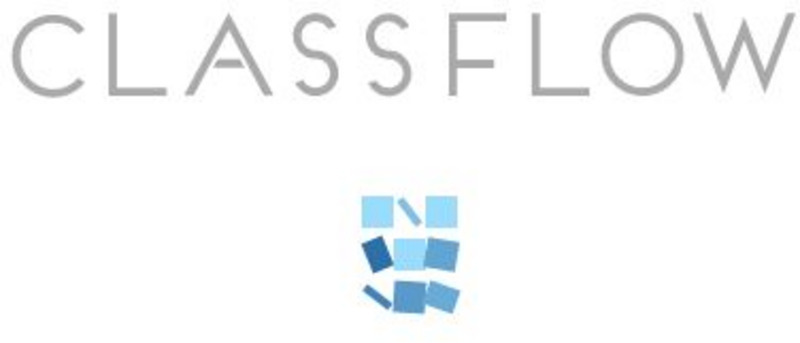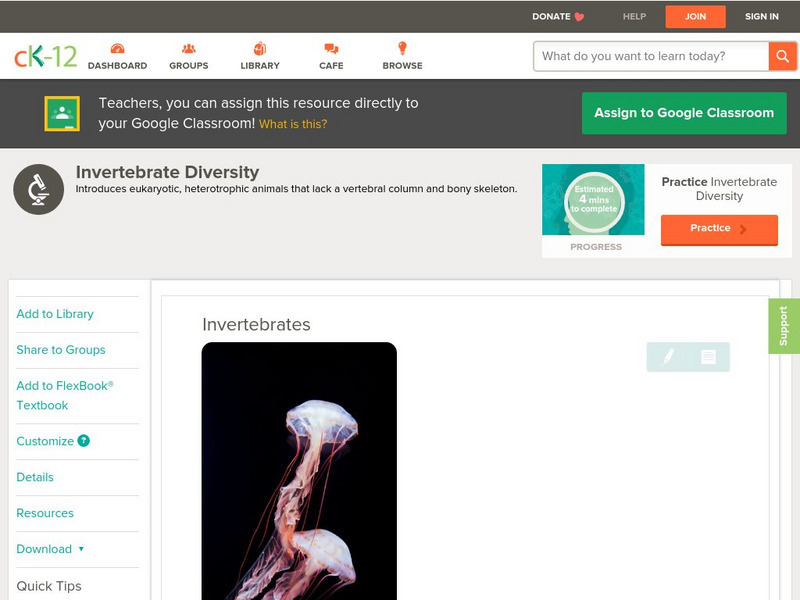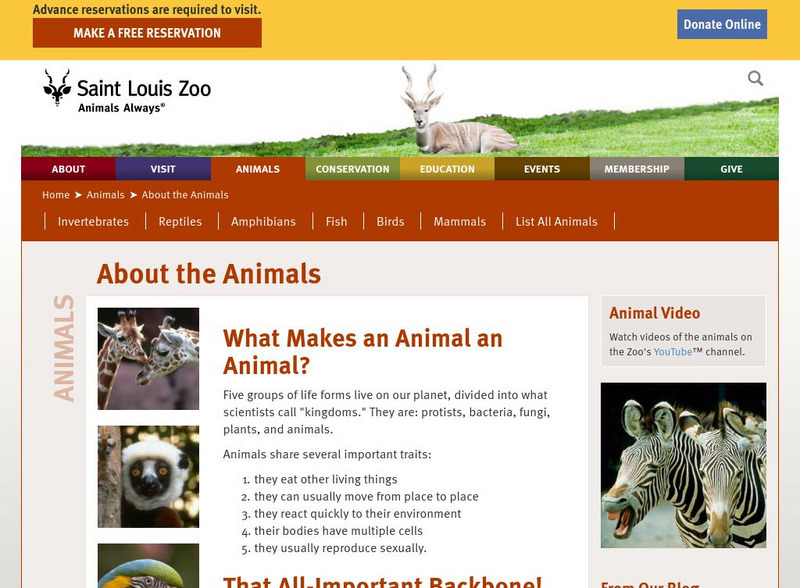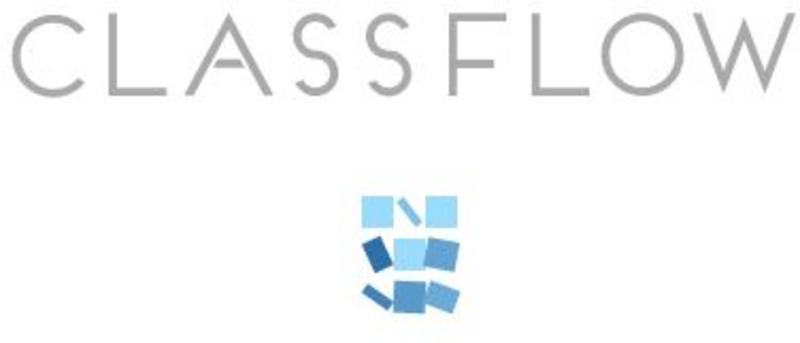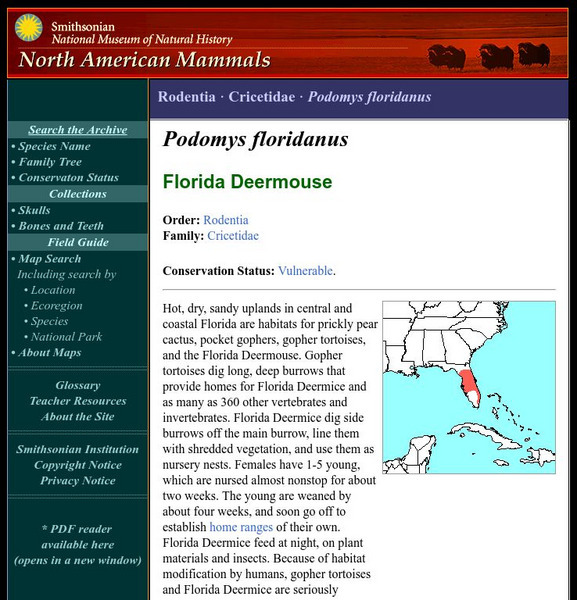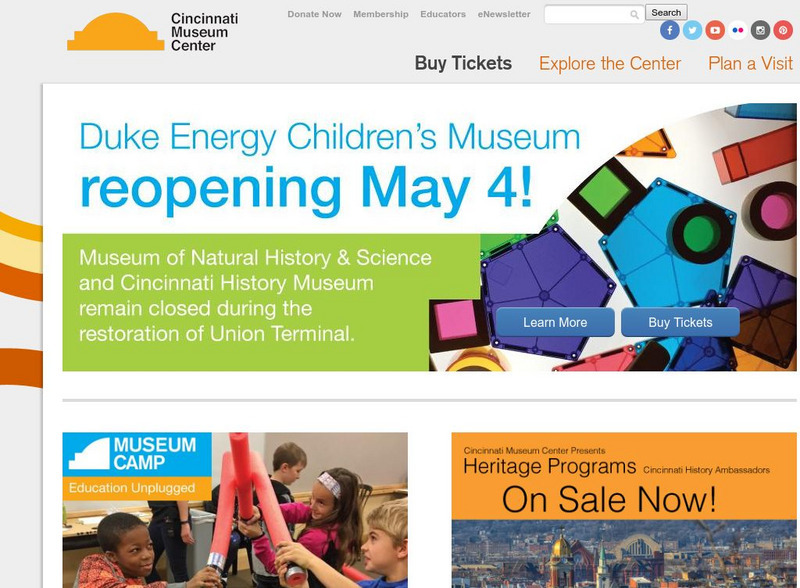ArtsNow
Arts Now Learning: Dance With Vertebrates and Invertebrates [Pdf]
In this instructional activity, 5th graders use movement and dance composition to aid in the understanding of vertebrates and invertebrates.
BiologyWise
Biology Wise: Vertebrates and Invertebrates
The characteristics of vertebrates and invertebrates are described here. Includes a list of examples for each group and a chart highlighting their differences.
Alabama Learning Exchange
Alex: Vertebrates or Invertebrates
During this lesson, students navigate the Internet to discover facts about vertebrates and invertebrates. They use the facts they learn to participate in several class activities.
ClassFlow
Class Flow: Vertebrates and Invertebrates
[Free Registration/Login Required] Using this lesson the students will review the 2 groups of animals - vertebrates and invertebrates. They will be actively involved in classifying animals. An Activote assessment is also included.
CK-12 Foundation
Ck 12: Life Science: Invertebrates
[Free Registration/Login may be required to access all resource tools.] Animals are also often identified as being either invertebrates or vertebrates. These are terms based on the skeletons of the animals. Vertebrates have a backbone...
Globio
Glossopedia: Animals
The animal kingdom and its classification are explained and broken down into vertebrates and invertebrates in this resource. "Best-of" the animal kingdom list given - fastest, smallest, largest, strongest and more.
Science Education Resource Center at Carleton College
Serc: Mn Step: Water Retention No Problem With the Key Investigation
Students go outside to a nearby pond or wet area, and collect vertebrates and invertebrates. These are identified using a classification key. Information is recorded using a digital camera and a science notebook. Students later prepare a...
Saint Louis Zoo
Saint Louis Zoo: About the Animals: What Makes an Animal an Animal?
Short introduction to animals explains the important traits that all animals share and the differences between vertebrates and invertebrates.
ClassFlow
Class Flow: Classifying Invertebrates
[Free Registration/Login Required] This is a lesson on classifying invertebrates based on their observable features. It focuses on the three types of worms: flatworm, roundworm, and segmented worm. The lesson contains 3 videos as well as...
ClassFlow
Class Flow: Animal Classification
[Free Registration/Login Required] Students will classify organisms into groups and relate how they determined the groups with how and why scientists use classification. They will also demonstrate how animals are sorted into groups...
Other
Denver Museum of Nature and Science: Follow a Fossil
Students examine paleontology, the study of ancient life on Earth. Some topics explored are vertebrates, invertebrates, and plants.
Georgia Department of Education
Ga Virtual Learning: Ap Biology: Animals
This unit focuses on the unique structure and function of both invertebrate and vertebrate animals. Students review their understanding of animal diversity, and take a closer look at the various organ systems found in the animal kingdom.
Other
Science4 Us: Animals
In online and offline activities, students broaden their understanding of animals by learning to identify and classify animals into six categories: mammals, birds, fish, amphibians, reptiles, and invertebrates.
Canadian Museum of Nature
Canadian Museum of Nature: Natural History Notebooks
A great reference source for a variety of vertebrate and invertebrate animals. This exhaustive resource also has some prehistoric extinct animals that students can compare to their living counterparts to increase their understanding of...
TED Talks
Ted: Ted Ed: How Do Animals Experience Pain?
How do the animals all around us experience pain? Robyn J. Crook examines pain in both vertebrate and invertebrate animals. [5:06]
PBS
Idaho Ptv: Dialogue for Kids: Zoology
A collection of facts and links on the field of zoology. The facts cover what zoology is, the diversity of vertebrate and invertebrate animals studied in zoology, scientific names for animals, where zoologists work, zoos around the...
Yale University
Yale Peabody Museum
This home page describes what the museum has to offer. Links to the exhibits and more information is provided at the bottom of the site.
PBS
Pbs: The Shape of Life
Companion site for the 8-part PBS series, "The Shape of Life." Each section focuses on a different phylum, from porifera through chordata. This site is highly informative, with beautiful photography.
University of Florida
Florida Museum of Natural History: Homepage
This site from the Florida Museum of Natural History gives the current events, information about the museum, exhibits and public programs, research and collections, links, etc. to the Florida Museum of Natural History.
ClassFlow
Class Flow: Animal Kingdom
[Free Registration/Login Required] This flipchart introduces students to the animal kingdom, differentiating between vertebrates and invertebrates.
Smithsonian Institution
National Museum of Natural History: American Mammals: Florida Mouse
Hot, dry, sandy uplands in central and coastal Florida are habitats for prickly pear cactus, pocket gophers, gopher tortoises, and the Florida Mouse. Gopher tortoises dig long, deep burrows that provide homes for Florida Mice and as many...
Other
Cincinnati Museum Center
This site describes the Museum of Natural History and Science in detail and provides links to other programs and exhibits offered.
Alabama Learning Exchange
Alex: Classification
This lesson will explain the reasons that society groups and classifies. The lesson has a hands-on component that helps students connect everyday grouping with the way that scientists group and classify all living organisms.
NOAA
Noaa: Photo Library: Welcome to "The Coral Kingdom"
This appealing site contains many wonderful photos of vertebrates, invertebrates, and corals found in the Caribbean Sea, Florida Reef, Pacific Reefs, and Red Sea Reefs.
![Arts Now Learning: Dance With Vertebrates and Invertebrates [Pdf] Lesson Plan Arts Now Learning: Dance With Vertebrates and Invertebrates [Pdf] Lesson Plan](https://d15y2dacu3jp90.cloudfront.net/images/attachment_defaults/resource/large/FPO-knovation.png)

